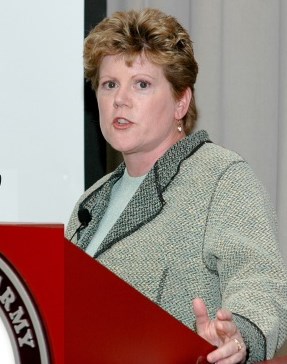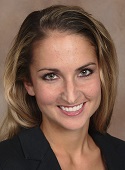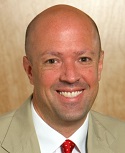MON, 31 OCT // 8:00 AM – 5:30 PM
Primary Content Focus: Neuroplasticity (includes neuroscience)
Secondary Content Focus: Brain Injury, Stroke
There has been much effort devoted to harnessing, directing, and enhancing the human central nervous system’s capacity for reorganization in disciplines including motor training, learning / education and neurorehabilitation. While we await a major clinical breakthrough, some lines of work have yielded encouraging results. This course will provide an overview of concepts relevant to neural plasticity and highlight therapies targeting mechanisms of neural plasticity that are ready or near- ready for implementation in neurorehabilitation practice.
LEARNING OBJECTIVES
- Describe at least two mechanisms of plasticity enabling cognitive and motor recovery
- Describe at least two treatments, known to induce or facilitate neural plasticity, that are ready for clinical implementation
- Summarize evidence for at least one treatment that supports the implementation of that treatment into daily clinical practice according to patient population and therapeutic effects
- Describe barriers and facilitators when implementing neurotherapeutic applications of non-invasive stimulation devices in neurorehabilitation practice
KEY WORDS
- Neuroplasticity
- Interventions
- Implementation
- Stroke
- TBI
- Neurodegenerative
- SCI
FACULTY
 Theresa Pape, Dr.PH, MA, CCC-SLP/L
Theresa Pape, Dr.PH, MA, CCC-SLP/L
Neuroscientist and Research Associate Professor, US Dept. of Veterans Affaris and Northwestern University Feinberg School of Medicine
Dr. Theresa Pape is a Clinical Neuroscientist with the Hines Veterans Administration Research Service and a Research Associate Professor at Northwestern University’s Feinberg School of Medicine, Department of PM&R.
Dr. Pape earned her Masters degree in Speech-Language Pathology in 1986. She provided speech-language services to persons with TBI for several years. Dr. Pape then completed a pre-doctoral fellowship with the VA Health Services Research and Development Service in 1999 as well as earning her doctorate of public health (Dr. PH) in 1999. Dr. Pape completed a post-doctoral fellowship in 2001 at Northwestern’s Institute for Health Services Research and Policy Studies, which is an Advanced Rehabilitation Research Training Program co-sponsored by NIDDLR and NRSA. After completing this fellowship in 2001 Dr. Pape went on to receive three consecutive career development awards with the VA RR&D service. First she received a Research Career Development Award (CDA I) to study rehabilitation measurement and outcomes post severe TBI. She subsequently received an Advanced Research Career Development Award (CDA II) to study advanced neurosciences and neural plasticity. Dr. Pape completed her third award in 2010, a Career Development Transition Award, to study neural plasticity in neurorehabilitation after TBI.
Dr. Pape has a strong history of Investigator Initiated Research funding from several Federal agencies including the VA, NIH, NIDDLR and the DoD. Dr. Pape’s research track in Neuroplasticity in Neurorehabilitaitn of TBI integrates two areas of expertise; measurement and translation clinical research. Currently she has three clinical trails and two measurement projects funded.
Eric Wasserman, MD
Chief, Behavioral Neurology Unit (formerly Brain Stimulation Unit),NIH
Dr. Wassermann is a clinical neurologist and neuroscientist who started his academic career studying the mechanisms of self-stimulation behavior in rats, strayed for a time into motor control, but returned to the learning field and the question of how to understand and promote beneficial plastic change in the human brain. Along the way, he became a leading expert in noninvasive brain stimulation and has merged this technical interest with his scientific goals. Dr. Wassermann directs the Behavioral Neurology Unit at the National Institute of Neurological Disorders and Stroke. The Unit brings a combination of noninvasive brain stimulation, functional imaging, and behavioral techniques to bear on problems in human learning, training, and adaptation. The primary clinical focus is currently on traumatic brain injury.
 Sue Ann Sisto, PT, MA, PhD, FACRM
Sue Ann Sisto, PT, MA, PhD, FACRM
Professor and Research Director, Rehabilitation Research and Movement Performance Lab, State University of New York at Stony Brook
Dr. Sue Ann Sisto, Past-President of ACRM and professor of Physical Therapy at Stony Brook University, School of Health Technology and Management, has been a physical therapist for over 32 years with a specialization in Spinal Cord Injury, health outcomes and movement dysfunction. Dr. Sisto is research director of the Rehabilitation Research and Movement Performance (RRAMP) Lab, and the program chair for the PhD Program in Health and Rehabilitation Sciences in the School of Health Technology and Management. Her current research direction is recovery of locomotion in spinal cord injury (SCI) and the impact on health outcomes as well as the use of TMS to promote neuroplasticity after SCI. Dr. Sisto has served on multiple grant review panels; she is associate editor for the Journal of Spinal Cord Injury Medicine and a member of the editorial board for the Journal of Head Trauma Rehabilitation. Dr. Sisto is an active member of the APTA Neurology Section. She published over 60 peer reviewed articles, several book chapters and a textbook on SCI Rehabilitation in 2009.
Phillip Janicak, MD
Professor, Northwestern University, Department of Psychiatry and Behavioral Sciences
Dr. Philip Janicak is the director of the Transcranial Magnetic Stimulation Center and consultant at Linden Oaks Medical Group at Edward-Elmhurst Healthcare; on the faculty of the Department of Psychiatry and Behavioral Sciences, Northwestern University Feinberg School of Medicine; and a Distinguished Life Fellow in the American Psychiatric Association. He was a professor of psychiatry and pharmacology; the medical director of the Psychiatric Clinical Research Center; and the associate program director for the NIH General Clinical Research Center at the University of Illinois Medical Center from 1994-2004. He then became a professor of psychiatry at Rush University and was the director of the Rush Psychiatric Clinical Research and Transcranial Magnetic Stimulation Centers from 2004-2014. Dr. Janicak’s primary research interests are in the assessment and treatment of mood and psychotic disorders. In this context, he has conducted over 60 clinical trials and has been recipient of many NIMH grants. He has participated as a principal lecturer in over 500 courses, seminars, symposia and related professional presentations.
 Leora Cherney, PhD
Leora Cherney, PhD
Research Scientist III, Rehabilitation Institute of Chicago
Dr. Cherney is professor of physical medicine and rehabilitation at Northwestern University, Feinberg School of Medicine and a Senior Research Scientist at the Rehabilitation Institute of Chicago. She has had more than 30 years of clinical experience working with adults with neurogenic communication disorders and presently directs the Center for Aphasia Research and Treatment at the Rehabilitation Institute of Chicago. Dr. Cherney is board-certified in neurologic communication disorders by the Academy of Neurologic Communication Disorders and Sciences (ANCDS) and a Fellow of both the American Speech-Language-Hearing Association and the Illinois Speech-Language Hearing Association. She has co-authored four books and has over 70 publications in refereed journals, textbooks, and other periodicals. Dr. Cherney’s research interests, which have been federally funded for 20 years, have focused on treatment approaches for aphasia and on attention and discourse problems in adults with cognitive-communication disorders.
Sangeetha Madhavan, PT, PhD
Assistant Professor, UIC, Department of Physical therapy
Dr. Madhavan is an assistant professor, in the Department of Physical Therapy, and director of the Brain Plasticity Laboratory at the University of Illinois at Chicago. Her research goals include developing individualized therapeutic approaches to advance existing rehabilitation practices using state-of-the-art technologies like transcranial magnetic stimulation (TMS) and transcranial direct current stimulation (tDCS). Currently, she is investigating the effects of cortical priming on walking outcomes in stroke survivors. This research is supported by the National Institute of Health Sciences (R01).
 Heather Tanksley Peters, MOT, OTR/L
Heather Tanksley Peters, MOT, OTR/L
Doctoral Student, The Ohio State University
Ms. Heather Tanksley Peters is a licensed occupational therapist and PhD student at The Ohio State University. Currently working in the B.R.A.I.N lab as a graduate research associate, her primary area of interest is developing and testing interventions that improve quality of life in stroke survivors. Specifically, her primary research area of emphasis is examining the effect of non-invasive brain stimulation combined with occupational therapy (Functional Brain Stimulation™) on improving arm and hand function as well as other post-stroke deficits in survivors of stroke. Heather has also engaged in research and/or published in the topics of mental practice, outcome measurement validity and portable upper extremity robotics.
Kwan Leung Ng, MD
Medical Director Vascular Neurology, UC Davis Medical Center
Dr. Kwan Ng focuses on the diagnosis and management of cerebrovascular disease (stroke), including acute stroke therapy, secondary prevention of stroke, and recovery from stroke. Dr. Ng received his medical and doctor of philosophy degrees from the University of California, Irvine. He completed his residency training in Neurology at Johns Hopkins Hospital. Following his residency, Dr. Ng then completed fellowships in Vascular Neurology and Neurorehabilitation at UCLA Ronald Reagan Hospital. He is currently the medical director of the Vascular Neurology at University of California, Davis Medical Center. His research interests include neural repair in white matter stroke, neurogenesis, and post-stroke motor recovery.
Preeti Raghavan, MD
Assistant Professor, Rusk Institute of Rehabilitation Medicine, New York University School of Medicine
Dr. Preeti Raghavan is a physician-scientist at the Rusk Institute of Rehabilitation Medicine. She directs the Motor Recovery Research Laboratory, whose mission is to develop innovative strategies to restore hand function after stroke and other neuromuscular disorders. Dr. Raghavan and her multidisciplinary team of physicians, therapists, engineers, and students investigate how brain injury affects motor skills and how sensorimotor integration can be used to enhance motor learning and control. She uses 3-dimensional measurements of arm and finger movements, fingertip forces, and muscle activity during natural movements to understand skill learning. Her goal is to improve access to rehabilitation and reduce disparity in stroke outcomes through home-based and community-based rehabilitation programs. In addition, she provides clinical services at the Hospital for Joint Diseases.
 Stephen Page, PhD, MS, MOT, OTR/L, FAHA, FACRM
Stephen Page, PhD, MS, MOT, OTR/L, FAHA, FACRM
Associate Professor, The Ohio State University
Dr. Stephen Page and his team develop and test approaches that increase function and independence after stroke and other neurologic diseases. He has held uninterrupted extramural funding to support this work for nearly 15 years, and has produced many “firsts” in neurorehabilitation, developing and showing efficacy of mental practice, portable robotics, modified constraint-induced therapy, functional electrical stimulation, and several other innovative strategies in stroke. In addition to being a Fellow of ACRM, he is also a fellow of the American Heart Association.
One full day of Instructional Courses: $199 // Three full days: $399
WORLD PASS (from $599) is the best value if you attend the CORE Conference and just one instructional course. CLICK HERE for pricing detail.
CONFERENCE HOME PAGE >>>
ALL PRE-CONFERENCE COURSES >>>
*Although significant changes are not anticipated, all schedules, sessions, and presenters posted on this website are subject to change.










